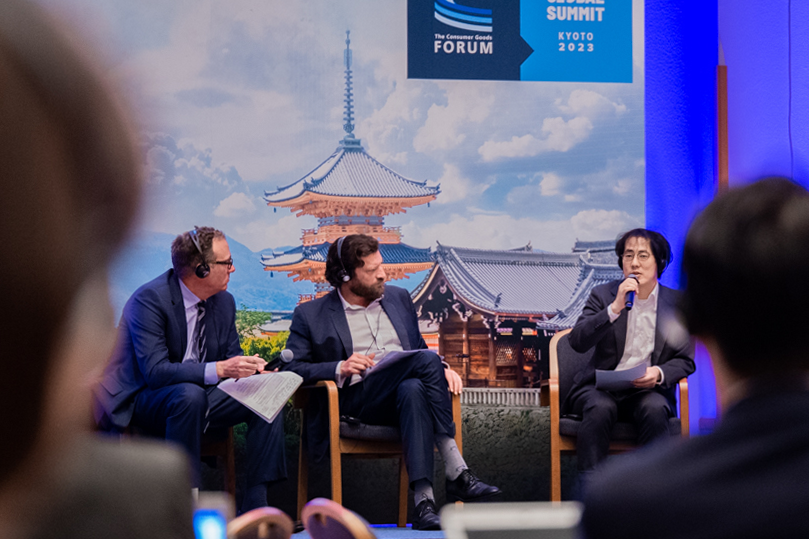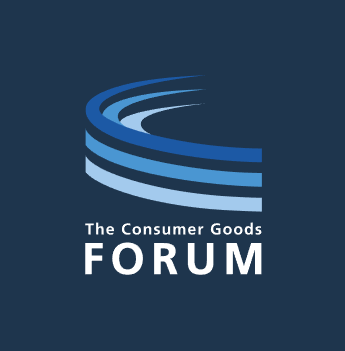Business and Government Convene To Advance Collaboration for Human Rights in Japan

KYOTO, June 13, 2023 /3BL Media/ - Officials from leading businesses, the Japanese government, and the United Nations met in Kyoto for a roundtable discussion to strengthen collaboration and accelerate respect for human rights in Japan’s consumer goods value chains. Taking place during The Consumer Goods Forum (CGF)’s prestigious Global Summit, the roundtable featured fruitful exchanges on how to best implement responsible business practices – particularly human rights due diligence (HRDD) – to enable respect for Workers’ rights in Japan. Following the recent meeting of G7 countries in Hiroshima in which leaders discussed ambitions for creating a more inclusive labour market, the roundtable marks an important step to realise this ambition in the Japanese context.
During the two-hour event hosted by the CGF’s CEO-led Human Rights Coalition (HRC), in collaboration with the CGF Japan Sustainability Local Group (JSLG), leaders shared perspectives from the private and public sectors on how to best collaborate to enable respect for Workers’ rights in the consumer goods industry. Gen Nakatani, Special Advisor to the Prime Minister of Japan for international human rights issues, and Tetsuo Nishimoto, Food Manufacturer Affairs Division, New Business and Food Industry Department, Japanese Ministry of Agriculture, Forestry and Fisheries (MAFF), spoke to the Japanese government’s approach for encouraging responsible recruitment and employment practices. They referenced the government’s recently published Guidelines on corporate HRDD, which build on the 2019 National Action Plan on Human Rights and support Japan’s ambitions as president of the G7 to ensure just working conditions for all. With these advancements, Japan is poised to become the first country in Asia with a strong framework for HRDD, aligning it with other G7 counterparts.
Tomoya Obokata, the UN Special Rapporteur on Contemporary Forms of Slavery, then joined the rountable to welcome Japan's ongoing efforts to strengthen HRDD together with the business community and other stakeholders. As the global trend of voluntary and mandatory HRDD requirements continues – and more people are in cases of forced labour and modern slavery than ever before – he encouraged ongoing collaboration among roundtable participants for the benefit of human rights globally.
The roundtable also provided space for member companies of JSLG to share their experiences implementing HRDD systems in their value chains. Yoshiaki Hiramatsu, ESG Division, Division Head, Fuji Oil Holdings introduced a case study on HRDD implementation while Jonathan Kushner, Chief Communications Officer, VP, McDonald's Company (Japan), Ltd., shared a case study of McDonald Japan’s efforts to introduce due diligence practices in its supply chain. Yumiko Watanabe, General Manager, Sustainability (Social) Group, Sustainability Development Dept., Ajinomoto, and JSLG Social Sustainability Working Group leader, also explained the work of the group and the efforts to enhance collaboration among businesses and Japanese government.
Christine Montenegro McGrath, SVP and Chief Impact and Sustainability Officer, Mondelēz International, and Salla Ahonen, Vice-President, Sustainability, Neste, also joined the roundtable to share global consumer goods brands’ perspectives on these efforts, providing examples of how HRC members are implementing an aligned HRDD approach in their own operations globally. HRC Co-Chair, Paul Lalli, Global VP, Human Rights, The Coca-Cola Company, also spoke with Nishimoto on how the efforts of both Japanese companies and global brands and retailers can be aligned and accelerated to achieve greatest impact for Workers.
Paul Lalli, Global VP Human Rights, The Coca-Cola Company, and HRC Co-Chair, said, “We are delighted to see the Japanese government’s leadership in driving corporate sustainability across supply chains. Embedding respect for human rights in businesses across the globe is a pressing challenge for all who care about building a better tomorrow. As today’s discussion highlighted, meeting the moment depends on true collaboration of business, government, and civil society to deliver meaningful progress for the world’s most vulnerable stakeholders. The CGF HRC will continue to seek inclusive partnerships and support best practices among consumer goods companies around the world to drive respect for human rights across corporate value chains.”
Yoshiaki Hiramatsu, ESG Division, Division Head, Fuji Oil Holdings, said, "We hope that our case studies will help many companies and government officials to accelerate their efforts to build sustainable food value chains in the future.”
Tomoya Obokata, UN Special Rapporteur on Contemporary Forms of Slavery, said, "Protection of Workers' rights and the implementation of human rights due diligence goes hand-in-hand with business prosperity. As greater collaboration advances between government and businesses in Japan, I look forward to seeing the positive impacts for Workers that will result from their collective efforts.”
– END –
EDITOR’S NOTE: The HRC is a CEO-led Coalition of Action advancing human rights due diligence throughout consumer goods value chains to enable respect for Workers’ rights; with nearly 30 members, the Coalition represents one of the world’s leading initiatives of consumer goods companies ensuring responsible recruitment and employment of Workers globally. In parallel, the JSLG Social Sustainability Working Group consists of 21 Japanese CGF members collaborating on key sustainability issues in the regional market, notably around human rights.
About the Human Rights Coalition
The Human Rights Coalition is the leading collective of consumer goods companies strengthening due diligence throughout their business practices to ensure Workers’ rights are protected, respected, and remedied at every step of the value chain. As a CEO-led initiative hosted by The Consumer Goods Forum, the only organisation to convene manufacturers and retailers globally, the HRC supports companies to effectively address salient human rights impacts, notably around forced labour, in their business practices through aligned, accelerated action driven at the highest levels of leadership. The work of the HRC continues the CGF’s long history of engagement on the issue of forced labour within consumer goods supply chains by building on the CGF’s Social Resolution on Forced Labour, the first of its kind in the industry; its Priority Industry Principles; and ongoing relationships with key stakeholders in the industry. To learn more about the Human Rights Coalition, visit www.tcgfsocial.com.
About The Consumer Goods Forum
The Consumer Goods Forum (“CGF”) is a global, parity-based industry network that is driven by its members to encourage the global adoption of practices and standards that serves the consumer goods industry worldwide. It brings together the CEOs and senior management of some 400 retailers, manufacturers, service providers, and other stakeholders across 70 countries, and it reflects the diversity of the industry in geography, size, product category and format. Its member companies have combined sales of EUR 3.5 trillion and directly employ nearly 10 million people, with a further 90 million related jobs estimated along the value chain. It is governed by its Board of Directors, which comprises more than 55 manufacturer and retailer CEOs. For more information, please visit: www.theconsumergoodsforum.com
For additional information, please contact:
Didier Bergeret
Director, Sustainability
The Consumer Goods Forum
social@theconsumergoodsforum.com
Noriko Shindo
Senior Manager, Sustainability
The Consumer Goods Forum, Japan office
Madelaine VanDerHeyden
Manager, Communications
The Consumer Goods Forum
m.vanderheyden@theconsumergoodsforum.com

